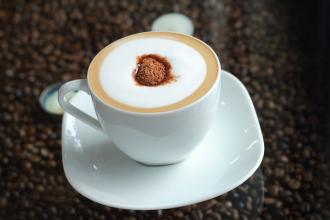Kopi Luwak producing area Kopi Luwak processing style Fine Coffee
Cat poop coffee refers to coffee beans that are fermented in the stomach after being eaten by cats. Cat poop coffee is processed into the world's most expensive coffee. Cat poop coffee is produced from the feces of Indonesian coconut cats (a kind of civet cat) as raw materials, so it is called "cat poop coffee". This kind of animal mainly feeds on coffee beans. After fermentation in coconut cat stomach, protein is destroyed, short peptides and more free amino acids are produced, the bitter taste of coffee will be reduced, and the feces discharged will be the main raw material. Since coffee beans cannot be digested, they will be excreted. After washing and baking, they become cat feces coffee. Coffee critic Chris Rubin said,"The bouquet is so rich and intense, and the coffee is incredibly rich, almost syrupy. The thickness and chocolaty texture of it, and lingering on the tongue for a long time, pure aftertaste."
Cat poop coffee is very expensive due to its very rare quantity, and it is sold in very few places, even in Indonesia, where it originates, so it is one of the most expensive coffees in the world. The cat feces coffee sold on the market is mostly artificially raised, and the flavor is different from the most primitive and natural wild cat feces coffee. M.P. Mountanos, the company that first introduced Kopi Luwak coffee to the United States, pointed out that when he first heard about this kind of in vivo fermented coffee, he thought it was a joke in the industry and did not take it seriously. Later, he saw a special report on Kopi Luwak in National Geographic magazine. It took seven years to find a stable source of supply and began to introduce small quantities into the United States. Generally speaking, Indonesian coffee has an earthy and herbal flavor, and its consistency is also the highest in all continents, but Kopi Luwak has a stronger earthy flavor and consistency, and its consistency is almost close to syrup. The aroma is very special. If you don't like Indonesian coffee in the first place, you will definitely hate Kopi Luwak. If you prefer the earthy flavor of aged beans, you may love this alternative coffee. Experts who have tasted Kopi Luwak offer polarized reviews, some likening it to human gourmet coffee. Although it was top-grade coffee, it was a personal preference to be willing to spend thousands of yuan on a cup of cat feces coffee. Cat poop coffee is a traditional specialty of some Indonesian islands such as Java, Sumatra, Bali and Sulawesi. [1]Indonesian civets like to choose the most ripe, sweet, full and juicy coffee fruit from the coffee tree as food. The coffee fruit passes through its digestive system, and only the pulp on the outside of the fruit is digested. The hard coffee beans will be excreted by the Indonesian coconut cat. After this digestion process, coffee beans have changed, unique flavor, taste particularly mellow. According to the study, the Indonesian civet's digestive system destroys the protein in the coffee beans, which reduces the bitterness of coffee and increases the round taste. [3]The coffee brand is 100% guaranteed wild kopi luwak, grown on the islands of sumatra, java, and survish, part of indonesia's 13,677 islands. Kopi Luwak brand is the only officially recognized brand by the Indonesian government and is loved by coffee lovers for its unique fruity and long aftertaste

Important Notice :
前街咖啡 FrontStreet Coffee has moved to new addredd:
FrontStreet Coffee Address: 315,Donghua East Road,GuangZhou
Tel:020 38364473
- Prev

Indonesian Coffee Origin Indonesian Coffee History
History of Coffee Coffee Origin Coffee began where to develop Coffee planting knowledge Promotion and Development of High quality Coffee in Indonesia the President of the Indonesian Special Coffee Association (SCAI) gave a brief overview of the export coffee business. Indonesia's total exports grew by an average of 50-20% a year between 2000 and 2009, until it became the world's third-largest coffee maker, Robbas.
- Next

Boutique coffee Tanzania coffee flavor Tanzania coffee boutique coffee
Tanzanian coffee has the excellent pedigree of the Middle Eastern non-washed bean family, bright acidity, rich and irritating flavor. There is no doubt that Kenyan coffee takes the lead in this family, but Tanzania has many advantages that are very similar to those of Kenya. Round beans are often specially selected and expensive, but sometimes they get moldy.
Related
- Does Rose Summer choose Blue, Green or Red? Detailed explanation of Rose Summer Coffee plots and Classification in Panamanian Jade Manor
- What is the difference between the origin, producing area, processing plant, cooperative and manor of coffee beans?
- How fine does the espresso powder fit? how to grind the espresso?
- Sca coffee roasting degree color card coffee roasting degree 8 roasting color values what do you mean?
- The practice of lattes: how to make lattes at home
- Introduction to Indonesian Fine Coffee beans-- Java Coffee producing area of Indonesian Arabica Coffee
- How much will the flavor of light and medium roasted rose summer be expressed? What baking level is rose summer suitable for?
- Introduction to the characteristics of washing, sun-drying or wet-planing coffee commonly used in Mantenin, Indonesia
- Price characteristics of Arabica Coffee Bean Starbucks introduction to Manning Coffee Bean Taste producing area Variety Manor
- What is the authentic Yega flavor? What are the flavor characteristics of the really excellent Yejasuffi coffee beans?

